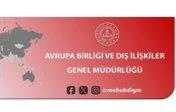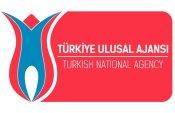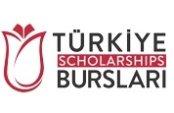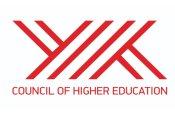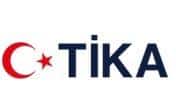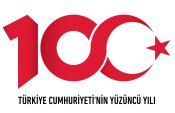THE UNITED NATIONS EDUCATIONAL, SCIENTIFIC AND CULTURAL ORGANIZATION (UNESCO)
The United Nations Educational, Scientific and Cultural Organization (UNESCO) was founded on 16 November 1945 by 20 countries. Turkey is one of the founding members of the organization. Today, UNESCO has 193 members.
The Preamble to the Constitution of UNESCO declares that "since wars begin in the minds of men and women, it is in the minds of men and women that the defences of peace must be constructed". UNESCO works to create the conditions for dialogue among civilizations, cultures and peoples, based upon respect for commonly shared values. The main mission of UNESCO is to contribute to peace and security, sustainable development and intercultural dialogue through education, science, culture, communication and information; to promote global respect for justice, the rule of law and human rights, regardless of race, gender, language or religion.
There are five programme sectors of UNESCO: "Education", "Culture", "Natural Sciences", "Social and Human Sciences" and "Communication and Information". UNESCO headquarter is located in Paris. Its three principal organs are the General Conference, the Executive Board, and the Secretariat.
General Conference
The General Conference is the supreme decision-making body of UNESCO, which meets every two years. All member states attend the General Conference, mostly at Ministerial level, and each member has one vote. Members of the Executive Board, the executive body of the Organization, are elected in the General Conference.
Executive Board
Elected by the General Conference, the Executive Board is one of three constitutional organs of UNESCO and consists of 58 member states serving a four-year term. It supervises the execution of UNESCO's program. It meets at least twice a year.
In order to correct an imbalance in the geographical distribution of seats on the Board, all members of UNESCO are grouped by regional Electoral Groups. Turkey is the 1st Electoral Group which is called the "North American and Western European Countries" Group including 27 countries. Turkey, which successfully carried out its membership in UNESCO's Executive Board for the period of 2017-2021, has been re-elected as a member state for the period of 2021-2025, in the elections held on Nov. 17, 2021 during UNESCO's 41st General Conference.
UNESCO's EDUCATION SECTOR
Education is one of the priority areas of UNESCO. Believing that education plays a key role in social and economic development and adopting a holistic, humanistic vision of education, UNESCO has been working to improve education worldwide since its establishment.
UNESCO's educational goals include providing inclusive and equitable education for all and promoting lifelong learning opportunities for all, as outlined in the 2030 Sustainable Development Goals; to provide universal and regional leadership in education; strengthen education systems worldwide from early childhood to adulthood; responding to contemporary and universal problems through education.
SDG 2030 Education Agenda
The 2030 Agenda for Sustainable Development, adopted by all United Nations Member States in 2015, provides a shared blueprint for peace and prosperity for people and the planet, now and into the future. Ambitions for education are essentially captured in Sustainable Development Goal 4 (SDG 4) of the 2030 Agenda which aims to "ensure inclusive and equitable quality education and promote lifelong learning opportunities for all" by 2030.
4.1 By 2030, ensure that all girls and boys complete free, equitable and quality primary and secondary education leading to relevant and effective learning outcomes
4.2 By 2030, ensure that all girls and boys have access to quality early childhood development, care and pre-primary education so that they are ready for primary education
4.3 By 2030, ensure equal access for all women and men to affordable and quality technical, vocational and tertiary education, including university
4.4 By 2030, substantially increase the number of youth and adults who have relevant skills, including technical and vocational skills, for employment, decent jobs and entrepreneurship.
4.5 By 2030, eliminate gender disparities in education and ensure equal access to all levels of education and vocational training for the vulnerable, including persons with disabilities, indigenous peoples and children in vulnerable situations
4.6 By 2030, ensure that all youth and a substantial proportion of adults, both men and women, achieve literacy and numeracy
4.7 By 2030, ensure that all learners acquire the knowledge and skills needed to promote sustainable development, including, among others, through education for sustainable development and sustainable lifestyles, human rights, gender equality, promotion of a culture of peace and non-violence, global citizenship and appreciation of cultural diversity and of culture's contribution to sustainable development
4.a Build and upgrade education facilities that are child, disability and gender sensitive and provide safe, non-violent, inclusive and effective learning environments for all
4.b By 2020, substantially expand globally the number of scholarships available to developing countries, in particular least developed countries, small island developing States and African countries, for enrolment in higher education, including vocational training and information and communications technology, technical, engineering and scientific programmes, in developed countries and other developing countries
4.c By 2030, substantially increase the supply of qualified teachers, including through international cooperation for teacher training in developing countries, especially least developed countries and small island developing States
UNESCO The Associated Schools Project Network (ASPnet)
The UNESCO Associated Schools Network (ASPnet) links educational institutions across the world around a common goal: to build the defences of peace in the minds of children and young people. The over 11,500 ASPnet member schools in 182 countries work in support of international understanding, peace, intercultural dialogue, sustainable development and quality education in practice. Within the scope of ASPnet Network, schools and institutions carry out projects on 4 themes. These themes are;
- World Issues and the Role of the United Nations
- Sustainable Development in Education
- Peace and Human Rights
- Intercultural Learning.
Before applying to join ASPnet, the strategy document at http://unesdoc.unesco.org/images/0023/002310/231049E.pdf should be read.
As a first step, schools should prepare an educational project related to one or more of ASPnet's working areas on peace, love, unity and respect. Also they should fill in the form of preliminary application in the "membership" section at https://aspnet.unesco.org/en-us. At the same time, they should contact the UNESCO Turkish National Commission.
After the approval of the UNESCO Turkey National Commission and the national coordinator, a detailed form is sent to the applying schools via e-mail and all the details of the project are requested to be written.
If the school is accepted to be included in ASPnet; The school receives a letter and certificate of acceptance for membership. Schools participating in ASPnet must regularly complete the "ASPnet Annual Report" each year.
Frequently asked questions about the ASPnet Program can be accessed from the website of the UNESCO Turkish National Commission at https://www.unesco.org.tr/Pages/204/130 .
UNESCO Clubs
In 2019, Ministry of National Education initiated efforts to establish UNESCO Clubs in schools in order to raise awareness of our students on UNESCO values and to carry out studies on UNESCO issues in schools. The number of schools that have already established UNESCO Clubs has reached 196.
UNESCO clubs hold in activities related to tangible and intangible cultural heritage and celebration of anniversaries accepted by UNESCO. Students both learn about their national and spiritual values and gain awareness about UNESCO's work such as world heritage and sustainable development goals. Schools participating in UNESCO Clubs must regularly complete annual report each year. Schools that do not submit annual reports for three consecutive years will not receive the UNESCO club title.
UNESCO TURKISH NATIONAL COMMISSION
UNESCO Turkish National Commission was established in Ankara with the decision of the Council of Ministers dated 25 August 1949 and numbered 3-9862.
UNESCO Turkish National Commission operates in the five sectors of UNESCO: education, natural sciences, social and human sciences, culture, information and communication, and consists of the following four bodies:
- General Assembly
- Executive Committe
- Board of Supervisors
- Secretariat
The General Assembly and the Executive Committe are two important decision-making bodies of National Commission.
Detailed information about Turkish National Commission can be found at http://www.unesco.org.tr/.



